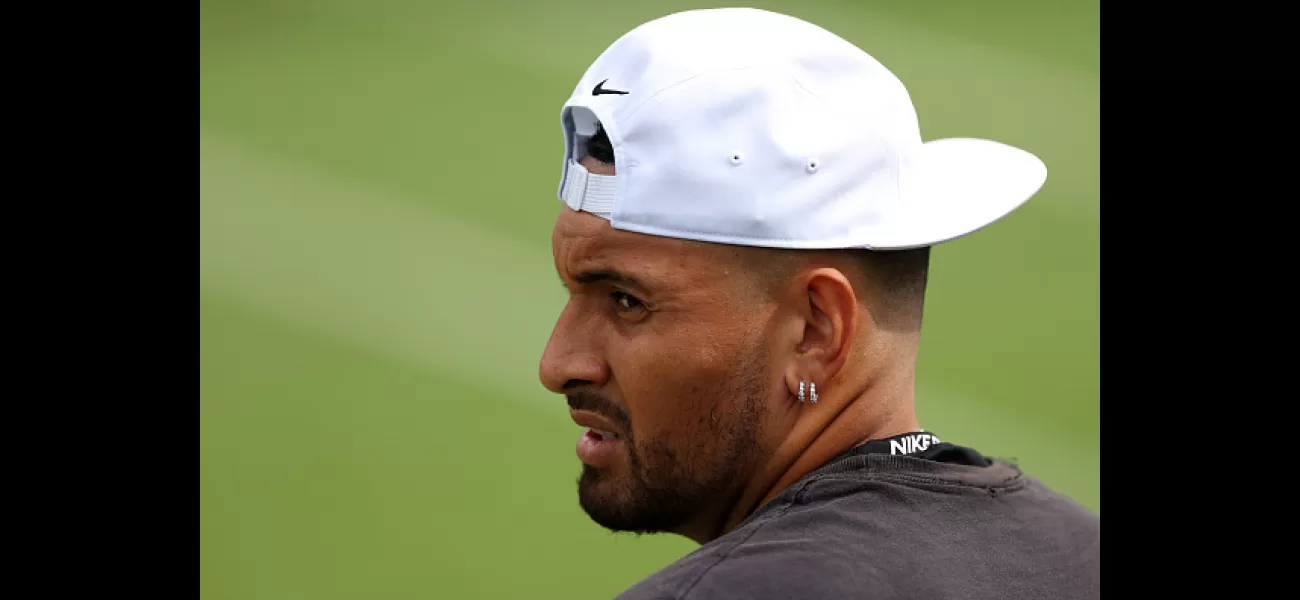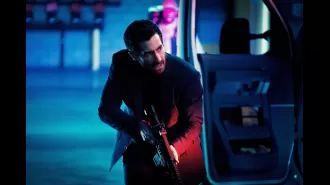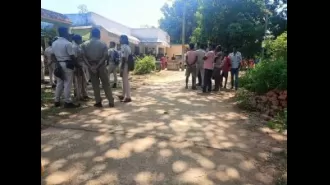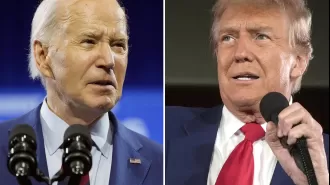Nick Kyrgios is a Wimbledon commentator despite confessing to attacking his former partner.
BBC noticed his guilty plea, but still giving him a platform to be praised as a sports figure.
May 24th 2024.

Last year at Wimbledon, Australian tennis player Nick Kyrgios made headlines for all the wrong reasons. In an Australian court, he pleaded guilty to assaulting his ex-girlfriend, Chiara Passari. It was a shocking revelation, but what was even more surprising was that he managed to escape a criminal conviction after apologizing for his actions.
As the Head of Media at Women’s Aid, I was appalled when I heard that the BBC had announced Kyrgios as a pundit for this year's Wimbledon. It's hard to believe that the BBC was unaware of his guilty plea, yet they still chose to give him a platform where he will be celebrated as a sporting personality.
This decision has a significant impact on both survivors of domestic abuse and the public's attitude towards it. As an organization that works closely with survivors, we know how upsetting it is for them to see abusers continue with their lives without facing any consequences. It sends a dangerous message that crimes like Kyrgios's are not that serious, and men can harm women without any repercussions.
This announcement also highlights the need for broadcasters to listen to survivors and work with specialist organizations to better understand domestic abuse. It's not just about the physical violence; domestic abuse takes many forms, from physical violence to coercive control. And leaving an abusive relationship is not as easy as it seems; it takes an average of seven attempts for a survivor to leave, often because they hope their partner will change.
By appointing Kyrgios as a prominent pundit for Wimbledon, broadcasters are reinforcing these fears and realities for many survivors. It shows that powerful men can continue with their lives and flourish in their careers, even after admitting to assaulting a woman.
But the long-term impact of domestic abuse goes beyond physical harm. Survivors often suffer from mental health issues, including stress, fear, and the stigma of not being believed by their community. And for women, regardless of whether they watch Wimbledon or not, the message is clear - violence against us is tolerated by society, and even the biggest broadcaster in the country is willing to give a platform to an admitted perpetrator of assault.
Furthermore, Kyrgios's support of a well-known misogynistic influencer, Andrew Tate, only adds to the concern. Tate himself is facing charges of violence against women, and his views reflect Kyrgios's views. This is not a coincidence; domestic abuse does not happen randomly. It is often fueled by harmful attitudes towards women and girls, as shown by our research on the link between supporting misogynistic influencers and finding domestic abuse acceptable.
And it's not just the BBC; other broadcasters have also made similar choices. This year, ITV invited a man convicted of assaulting his ex-partner to appear on Celebrity Big Brother. Reality TV shows like Love Island and Married at First Sight have also raised concerns about the promotion of toxic masculinity and coercive control.
Broadcasters have a responsibility to take these issues seriously. They need to listen to survivors and consider the trauma they have endured when making decisions about who to give a platform to. It's not enough to simply sweep it under the carpet or turn a blind eye to controlling or misogynistic behavior on their shows.
But it's not just up to broadcasters; as a society, we all have a role to play in ending domestic abuse. We need to believe and support survivors, and let them know that their experiences and trauma are valid. Our Come Together campaign, which coincides with our 50th anniversary, aims to do just that - bring women and men together to discuss this crucial issue and send a message that domestic abuse will not be tolerated.
As we gear up for this year's Wimbledon, let's think carefully about who we are giving a microphone to. By shining the spotlight on known abusers, we are sending a message that we tolerate domestic abuse. But it's not too late to make a change; we can choose to take a stand against domestic abuse and send a message that it will not be tolerated in any form. I may be more interested in the Euros than Wimbledon myself, but this issue affects us all, and it's time for us to take a stand and make a difference.
As the Head of Media at Women’s Aid, I was appalled when I heard that the BBC had announced Kyrgios as a pundit for this year's Wimbledon. It's hard to believe that the BBC was unaware of his guilty plea, yet they still chose to give him a platform where he will be celebrated as a sporting personality.
This decision has a significant impact on both survivors of domestic abuse and the public's attitude towards it. As an organization that works closely with survivors, we know how upsetting it is for them to see abusers continue with their lives without facing any consequences. It sends a dangerous message that crimes like Kyrgios's are not that serious, and men can harm women without any repercussions.
This announcement also highlights the need for broadcasters to listen to survivors and work with specialist organizations to better understand domestic abuse. It's not just about the physical violence; domestic abuse takes many forms, from physical violence to coercive control. And leaving an abusive relationship is not as easy as it seems; it takes an average of seven attempts for a survivor to leave, often because they hope their partner will change.
By appointing Kyrgios as a prominent pundit for Wimbledon, broadcasters are reinforcing these fears and realities for many survivors. It shows that powerful men can continue with their lives and flourish in their careers, even after admitting to assaulting a woman.
But the long-term impact of domestic abuse goes beyond physical harm. Survivors often suffer from mental health issues, including stress, fear, and the stigma of not being believed by their community. And for women, regardless of whether they watch Wimbledon or not, the message is clear - violence against us is tolerated by society, and even the biggest broadcaster in the country is willing to give a platform to an admitted perpetrator of assault.
Furthermore, Kyrgios's support of a well-known misogynistic influencer, Andrew Tate, only adds to the concern. Tate himself is facing charges of violence against women, and his views reflect Kyrgios's views. This is not a coincidence; domestic abuse does not happen randomly. It is often fueled by harmful attitudes towards women and girls, as shown by our research on the link between supporting misogynistic influencers and finding domestic abuse acceptable.
And it's not just the BBC; other broadcasters have also made similar choices. This year, ITV invited a man convicted of assaulting his ex-partner to appear on Celebrity Big Brother. Reality TV shows like Love Island and Married at First Sight have also raised concerns about the promotion of toxic masculinity and coercive control.
Broadcasters have a responsibility to take these issues seriously. They need to listen to survivors and consider the trauma they have endured when making decisions about who to give a platform to. It's not enough to simply sweep it under the carpet or turn a blind eye to controlling or misogynistic behavior on their shows.
But it's not just up to broadcasters; as a society, we all have a role to play in ending domestic abuse. We need to believe and support survivors, and let them know that their experiences and trauma are valid. Our Come Together campaign, which coincides with our 50th anniversary, aims to do just that - bring women and men together to discuss this crucial issue and send a message that domestic abuse will not be tolerated.
As we gear up for this year's Wimbledon, let's think carefully about who we are giving a microphone to. By shining the spotlight on known abusers, we are sending a message that we tolerate domestic abuse. But it's not too late to make a change; we can choose to take a stand against domestic abuse and send a message that it will not be tolerated in any form. I may be more interested in the Euros than Wimbledon myself, but this issue affects us all, and it's time for us to take a stand and make a difference.
[This article has been trending online recently and has been generated with AI. Your feed is customized.]
[Generative AI is experimental.]
0
0
Submit Comment





